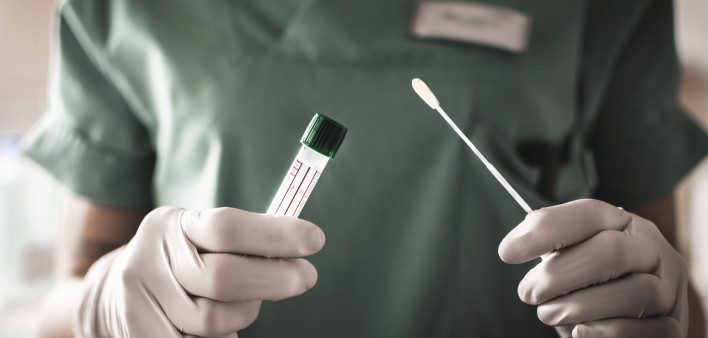At-home self-collected tests for human papillomavirus (HPV) detected high-risk HPV strains in 25 of 40 women living with HIV who tried this approach, a pilot study underway at George Washington University has found.
One of the most common sexually transmitted infections, HPV causes abnormal cell growth that can progress to cervical cancer, anal cancer, mouth and throat cancer and other malignancies. Regular screening using Pap smears and HPV tests can catch precancerous cervical cell growth when it is easier to treat. Recent study results showed that the same is true for anal cancer.
The HPV vaccine, which prevents infection in the first place, is recommended for girls and boys at ages 11 or 12, with catch-up vaccination through age 26. What’s more, recent data suggest that HPV vaccines may also lower women’s risk of acquiring HIV.
People living with HIV are more likely to carry HPV and are at higher risk of HPV-related cancers, so it’s especially important for this population to get the HPV vaccine and undergo regular screening.
In this ongoing pilot study, Daisy Le, PhD, MPH, an assistant professor of health disparities and oncology at George Washington University’s School of Nursing, and colleagues sent HPV self-tests to women living with HIV in Washington, DC. The study participants were asked to take separate cervical and anal swabs and return them to the clinic for processing. A previous study by Le, published in Current Oncology, found that although providers were skeptical about the approach, women said they’d be willing to try it.
The current study found that they did so. And so far, swabs from 25 of the 40 women have come up positive. Le is hoping to recruit another 10 DC-area women living with HIV to participate in the program, called the MySHARE Study. If the approach is successful, she hopes to obtain funding and partner with local health departments to distribute HPV self-testing to medically underserved women across the country in the next five to 10 years.
“There’s so much out there in terms of goals that we want to eliminate cervical cancer,” Le said in a GW Hatchet news article. “We have HPV vaccines. We have HPV screening itself…. We have a Pap smear. We can use all of that to catch cervical cancer before it becomes cancer and help a woman live longer.”
Click here to read the news article.
Click here to read more news about HPV and to learn more about women and HIV.







Comments
Comments